The views expressed in our content reflect individual perspectives and do not represent the authoritative views of the Baha'i Faith.
In this extensive series of articles on the holy ones who have inspired and taught native and Indigenous peoples, we’ve discovered many great spiritual messengers – but who is included on that esteemed list?
In this installment, Kevin Locke and Christopher Buck consult on that important question.
RELATED: How Baha’is Promote the Recognition of Indigenous Beliefs
Q: Kevin, as you well know, the Baha’i principle of “progressive revelation” initially inspired these articles we’ve researched and written together. Abdu’l-Baha, the successor of Baha’u’llah, the prophet and founder of the Baha’i Faith, said:
Among the bounties of God is revelation. Hence revelation is progressive and continuous. It never ceases. It is necessary that the reality of Divinity with all its perfections and attributes should become resplendent in the human world. The reality of Divinity is like an endless ocean. Revelation may be likened to the rain. Can you imagine the cessation of rain? Ever on the face of the earth somewhere rain is pouring down.
In recognition of that ever-descending rain of revelation, naturalist and anthropologist Vinson Brown’s book, Voices of Earth and Sky, presents information on some of the Indigenous messengers of God we’ve previously written about in this series:
(1) Deganawida (Haudenosaunee/Iroquois);
(2) White Buffalo Calf Maiden (Lakota);
(3) Sweet Medicine (Cheyenne);
(4) Quetzalcoatl (Toltec);
(5) Viracocha (Inca);
(6) Ulikron (Panama); and
(7) Chinigchinich (a.k.a. Chinigchinix, of the Tongva people of southern California and northern Baja California).
Beyond these relatively well-known Indigenous “culture heroes,” Kevin, you and I have written about:
(8) Lone Man (of the Mandan and Hidatsa First Nations);
(9) Breathmaker (of the Seminole and Miccosukee peoples);
(10) Talking God (Navajo/Diné);
(11) Gluskap (Wabanaki and other First Nations);
(12) Wesakechak (Cree);
(13) Nanabush (Anishinaabe [Ojibway]);
(14) Bunjil (Australian Aboriginal);
(15) Rainbow Serpent (Australian Aboriginal).
Also, forthcoming articles in this series will detail the teachings of more Indigenous messengers:
(16) Mother Corn (Arikara);
(17) Kuuchamaa (Kumeyaay);
(18) Ibeorgun of the Guna people of the San Blas Islands in Panama;
(19) Tunupa, of the southern Andean and Qollasuyu region near Lake Titicaca;
(20) Bochica (Nemterequeteba) of the Chibchas in Columbia;
(21) Wangetsmuna, Kamsa in Southern Colombia;
(22) Iyatiku (Corn Woman): Acoma Pueblo.
Vinson Brown also mentions, among many others: Kuksu of the Pomo groups, as well as the Coast, Lake, and Plains Miwok, the Maidu, the Patwin, the Yuki in California; Child-of-the-Water(s) of the Apaches; Slayer-of-Enemy-Gods, also known as Nayenezgani, of the Navajo; and several others too numerous to list. Vinson Brown concluded his listing of these Indigenous messengers of God with this coda:
Another pattern is that often the culture hero promises that he or one like him will return again when the world gets dark and the Earth needs a Light-bringer. Is not all this evidence suggestive that the Great Spirit has a Great Plan, that He has helped mankind in all parts of the world, as a kind Father should and would, and is preparing them for a day of unity, beauty, honor and glory when the dark doings of man shall fade away before the blinding light of a New Teacher?
RELATED: Celebrating Indigenous People’s Day – Spiritually
Kevin, at this juncture in our “Indigenous Messengers of God” series, would you like to comment on the significance of our journey so far – and on the qualities and qualifications that make someone an Indigenous messenger?
A: My late mother, Patricia Locke, was adamant about the power of the Baha’i principle of progressive revelation in enabling people to awaken to the new source of divine truth for this day and age in the profound teachings of Baha’u’llah, who has come for all nations, religions and races — including First Nations, and in fulfillment of their respective sacred traditions and ethnic ways and mores. Baha’u’llah is that new teacher who the previous messengers have all promised. As Baha’u’llah wrote in his Book of Certitude:
It is clear and evident to thee that all the Prophets are the Temples of the Cause of God, Who have appeared clothed in divers attire. If thou wilt observe with discriminating eyes, thou wilt behold them all abiding in the same tabernacle, soaring in the same heaven, seated upon the same throne, uttering the same speech, and proclaiming the same Faith. Such is the unity of those Essences of being, those Luminaries of infinite and immeasurable splendour.
That said, Patricia Locke was not just referring to the spiritual progression of the “Adamic Cycle,” which is primarily based on the succession of prophets and messengers throughout the sacred history of the Abrahamic faiths – Judaism, Christianity, Islam and the Babi and Baha’i religions – and what are sometimes referred to as the “Aryan religions” of Hinduism, Zoroastrianism, and Buddhism. These Faiths all began on the other side of the world far and away from the Western Hemisphere. Instead, Patricia Locke focused on the spiritual history and sacred traditions of the Indigenous peoples of the Americas.
So her reference point had always been the teachings and prophecies of the “Wise Ones” who walked and talked and taught all across our homeland. As a child, while she was secretly participating in ancestral North American devotional practices with her family — such as clandestine, remote ceremonies to receive blessings from and to greet the dawn — my mother came to understand that they were also praying for and anticipating the day of fulfillment, and that she would have a role in that promised day. Her understanding was that all people, including Indigenous peoples, have been divinely inspired to look forward to a time and era of fulfillment, whether the peoples were from an Abrahamic faith or not, and that it was especially important for “settler” or Euro-American populations to become aware of this common and shared heritage of anticipation inspired by the one true God through the mouthpiece of the holy souls authorized by Him to appear on this Native land.
This is why Patricia Locke went to great lengths, throughout her late adult life as a new Baha’i, to research the footsteps of these divine messengers throughout the Western Hemisphere and, through her writings, to create a broad awareness of their past presence and teachings that are preserved and practiced to the present day. While reaching broader audiences, it is paramount that the Indigenous people themselves reconnect with their own spiritual heritages, so much of which has been lost due to the past policies which Kevin Gover retrospectively highlights in his poignant and historic “Never Again” speech of September 8, 2000, in the video that you obtained from the Bureau of Indian Affairs (see here), and what you wrote about as well (see here).
We pray that this spiritual dislocation can be transmuted into assurance and recognition of a rich spiritual inheritance – and that the dreams, visions, and aspirations planted in the hearts of the Indigenous ancestors by those Great Ones will be translated into acquisition of the knowledge, insights and skills now needed to spiritualize and transform the Indigenous peoples of the Americas and around the world to arise and fulfill their noble destiny.
Q: Kevin, would you please tell us how you would go about determining, as a matter of spiritual intuition, if you will, which of these prospective Indigenous messengers of God can and should be regarded as authentic, even as distant, somewhat fragmented, and even embellished cultural memories? What criteria apply, from an Indigenous perspective? What criteria apply, from a Baha’i perspective? How best to connect the two perspectives on these possible Indigenous messengers of God?
A: Chris, I’m glad that you qualify your question by asking about my own “intuition.” My intuition tells me that there are several obvious “Indigenous messengers of God” who should be highly regarded, recognized and respected by non-indigenous as well as Indigenous peoples. Among them are Deganawida, the Peacemaker, of the Haudenosaunee peoples; White Buffalo Calf Woman of the Lakota; Sweet Medicine of the Cheyenne; and Breathmaker of the southeastern Muskogean peoples. Other Indigenous spiritual teachers are no less great — but, because of settler policies of suppression and oppression, have suffered an unnatural attrition of their adherents and the eventual erasure of so many of their sacred precepts and practices. That erasure has been so complete in some cases that the names of those messengers, and even the names of the tribal peoples they appeared to, have been lost.
RELATED: Louise Profeit-LaBlanc: Stories of Our First Peoples
It’s my hope that the teachings of the Indigenous messengers will be respected, revived, and related to the wider world through the Indigenous embracing of the inclusive, all-embracing and universal vehicle of the Baha’i teachings. But this can happen if and only if a significant groundswell in interest, initiative, and outreach occurs on the part of non-indigenous people, including the Baha’is and those of all Faiths, in reciprocal recognition and respect of the Indigenous messengers of God who have appeared in the Americas in ancient times. That’s why we are encouraging local Baha’i communities across the Americas – and indeed, all non-indigenous communities – to reach out to Indigenous peoples, beginning with initiating and offering Indigenous land and spiritual acknowledgements.
Q: Kevin, you recently offered an Indigenous land and spiritual acknowledgment, in the form of a prayer. Let’s see that prayer again.
A: Sure. Here it is:
Grandfather above, we acknowledge the holy ones you have sent upon this land to kindle the sacred fire in the hearts of us — your grandchildren. We are eternally grateful that, in ancient times, you have sent Deganawida, the Peacemaker, White Buffalo Calf Woman, Breath Maker, Sweet Medicine and a myriad others to breathe holiness and beauty upon this Turtle Island and your grandchildren here, and to teach us Your laws and to enable us to draw close to You and especially to love and cherish our relative, Grandmother Earth, and all that dwell upon her. In particular we acknowledge the holy ones You have sent to the spot upon which we stand and the nations and kindreds who have been the custodians of that sacred trust. We ask that You breathe upon and fan the embers of the fire of love and faith in our hearts and minds, that our footsteps may tread Your path and we may restore peace and order upon this blessed land.
Q: Kevin, would you also please comment on how far we have gone, and how far we need to go, and where all this will prospectively lead? What’s the vision, going forward?
A: I may be overly idealistic, but my personal goal is for everyone to see themselves as the legitimate heirs to the entirety of the spiritual heritage of all of humanity.
When I cross the ocean and am among the far-off populations inspired by the Buddha or Krishna or Moses, I wish to feel that I, too, am a beneficiary of their great spiritual legacies, which are part and parcel of the entire world’s spiritual heritage. By the same token, I expect people, in our “neck of the woods” — the Americas — to also partake of the richness of this land and its beautiful spiritual heritage. Ultimately, I do believe that the divine power and influence of Baha’u’llah and his pervasive and all-inclusive precepts and practices will transform the hearts and minds of humankind to conform to the Creator’s will.
Q: With the feather of our consultation now in my grasp, here is what I hear you saying: “Unity through diversity” — as the Baha’i philosopher, Alain Locke beautifully rephrased, recaptured, and re-energized the Baha’i principle of “unity in diversity” — achieves social solidity through inclusion rather than exclusion.
A: You said it. Another way of saying it, from the Lakota perspective, is “All my relations.” As applied to the great spiritual teachers who have appeared around the world, “all my relations” means including, recognizing, and respecting all Indigenous messengers of God, along with all Abrahamic and other divinely inspired teachers and founders of religions.
For further information, please see the October 9, 2021 PowerPoint by Christopher Buck and Kevin Locke HERE.
You May Also Like
Comments



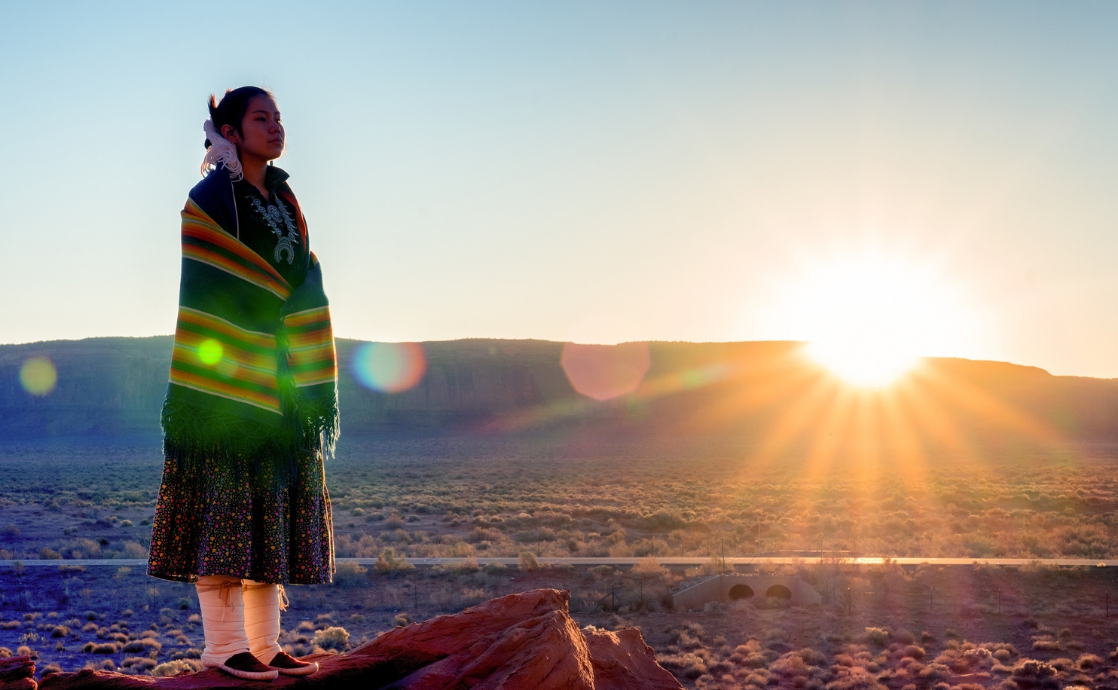
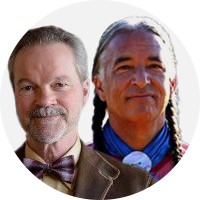
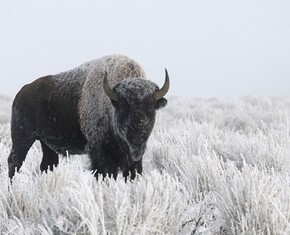
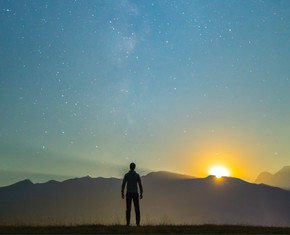
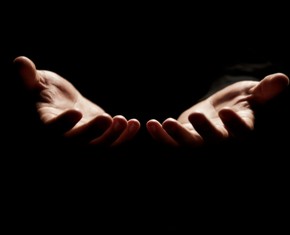









If we are truly united one day, we will all be assimilated in law, but welcome to keep our own traditions. We should not be ...treated differently in law, which the UNDRIP would have us be.
If we are truly united one day, we will all be assimilated in law, but welcome to keep our own traditions. We should not be ...treated differently in law, which the UNDRIP would have us be.